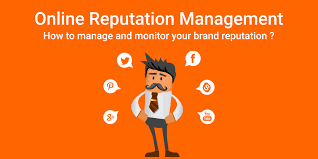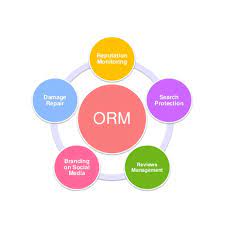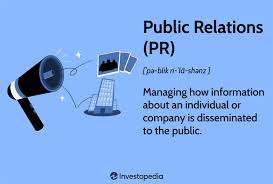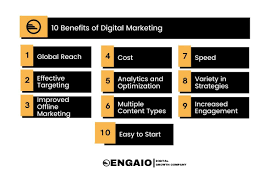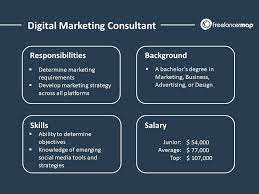Unlocking Success: The Power of an Internet Marketing Strategy Consultant
In today’s digital age, businesses are increasingly recognizing the importance of a robust online presence and effective internet marketing strategies. However, navigating the vast and ever-evolving landscape of online marketing can be daunting. That’s where an internet marketing strategy consultant comes in – a trusted partner who can help businesses unlock their full potential and achieve success in the digital realm.
An internet marketing strategy consultant is a professional who specializes in developing and implementing tailored online marketing strategies to drive growth, increase brand visibility, and maximize return on investment. They possess a deep understanding of various digital channels, trends, and consumer behavior, enabling them to craft comprehensive strategies that align with business goals.
One of the key advantages of working with an internet marketing strategy consultant is their ability to provide an objective perspective. Often, businesses may find themselves too close to their own operations to identify opportunities or weaknesses in their online marketing efforts. A consultant brings fresh insights and a critical eye, conducting thorough audits and assessments to identify areas for improvement.
With their expertise in market research and analysis, an internet marketing strategy consultant can help businesses identify their target audience more effectively. By understanding consumer demographics, preferences, and behaviors, they can develop targeted campaigns that resonate with the right people at the right time. This leads to higher engagement rates, increased conversions, and ultimately, improved business outcomes.
Furthermore, an internet marketing strategy consultant stays up-to-date with the latest industry trends and best practices. They are well-versed in search engine optimization (SEO), pay-per-click (PPC) advertising, social media management, content marketing, email campaigns, and more. By leveraging these tools strategically while adapting to changes in algorithms or consumer behavior patterns, they ensure that businesses stay ahead of the competition.
Collaboration lies at the heart of successful partnerships with internet marketing strategy consultants. They work closely with businesses to understand their unique needs and objectives, tailoring strategies to suit their specific circumstances. By forging a strong working relationship, they become an extension of the business, aligning their expertise with the company’s vision and values.
Moreover, an internet marketing strategy consultant provides ongoing monitoring and analysis of campaign performance. They track key metrics, such as website traffic, conversion rates, and customer engagement, to evaluate the effectiveness of strategies and make data-driven adjustments as needed. This continuous optimization ensures that businesses are always on the path to improvement and growth.
In a world where online visibility can make or break a business, investing in an internet marketing strategy consultant is a wise decision. Their knowledge, experience, and strategic thinking can help businesses navigate the complexities of digital marketing successfully. By harnessing their expertise, businesses can unlock their full potential online and achieve sustainable growth in today’s competitive marketplace.
So, if you’re ready to take your online marketing efforts to new heights and unlock success in the digital realm, it’s time to partner with an internet marketing strategy consultant. Embrace the power of expert guidance and watch your business thrive in the vast landscape of online opportunities.
9 Essential Tips for Hiring an Internet Marketing Strategy Consultant
- Research potential internet marketing strategy consultants to ensure they have the necessary experience and qualifications.
- Ask for references and case studies that demonstrate their success in delivering successful internet marketing strategies.
- Make sure the consultant understands your business goals and objectives before agreeing to work together.
- Clarify the scope of the project, timeline, budget, and expected deliverables upfront with the consultant.
- Ensure that you are clear on who will be responsible for what tasks throughout the project.
- Monitor progress regularly to ensure that deadlines are met and objectives are being achieved as expected by both parties involved in the project.
- Discuss any changes or adjustments needed during the project with your consultant as soon as possible to avoid delays or misunderstandings later on down the line .
- Be open-minded when it comes to implementing new ideas or strategies suggested by your consultant – after all they’re an expert in this field!
- Don’t forget to thank them for their hard work once you reach a successful outcome from your internet marketing strategy!
Research potential internet marketing strategy consultants to ensure they have the necessary experience and qualifications.
The Key to Success: Researching Internet Marketing Strategy Consultants
In the fast-paced world of internet marketing, finding the right consultant can make all the difference in achieving your business goals. When it comes to selecting an internet marketing strategy consultant, thorough research is essential to ensure you partner with someone who possesses the necessary experience and qualifications. Let’s explore why this tip is crucial for your success.
Firstly, researching potential internet marketing strategy consultants allows you to assess their expertise and track record. Look for professionals with a proven history of delivering successful campaigns and driving tangible results for their clients. By examining case studies or client testimonials, you can gain insights into their capabilities and determine if they align with your business objectives.
Moreover, qualifications play a vital role in evaluating consultants. Seek out individuals who have relevant certifications or qualifications in areas such as digital marketing, search engine optimization (SEO), social media management, or content marketing. These credentials demonstrate their commitment to staying up-to-date with industry trends and best practices.
Additionally, consider the specific experience that a consultant brings to the table. Are they well-versed in your industry? Do they have experience working with businesses similar to yours? An understanding of your sector can provide valuable insights and tailored strategies that resonate with your target audience.
Another aspect worth exploring is the consultant’s knowledge of various digital channels. A well-rounded internet marketing strategy consultant should be familiar with a range of platforms such as search engines, social media networks, email marketing tools, and more. This versatility ensures they can develop holistic strategies that leverage multiple channels effectively.
Furthermore, researching potential consultants allows you to assess their communication style and compatibility with your team. Effective collaboration is vital for a successful partnership. Look for someone who listens attentively, asks insightful questions, and demonstrates a genuine interest in understanding your business needs.
Lastly, don’t underestimate the power of personal recommendations or referrals from trusted sources within your network. Hearing firsthand experiences from others who have worked with a particular consultant can provide valuable insights and help you make an informed decision.
In conclusion, researching potential internet marketing strategy consultants is an essential step towards finding the right partner for your business. By evaluating their experience, qualifications, industry knowledge, and communication style, you can make an informed decision that aligns with your objectives. Remember, investing time in selecting the right consultant can lead to a fruitful and successful collaboration that propels your business forward in the competitive digital landscape.
Ask for references and case studies that demonstrate their success in delivering successful internet marketing strategies.
When it comes to choosing an internet marketing strategy consultant, one of the most valuable tips is to ask for references and case studies that showcase their track record of success. This step can provide you with valuable insights into their expertise, capabilities, and the results they have achieved for previous clients.
References and case studies act as proof points, allowing you to assess the consultant’s ability to deliver effective internet marketing strategies. By speaking with previous clients or reviewing their testimonials, you can gain a better understanding of their overall client satisfaction and the impact they have made on businesses similar to yours.
Case studies are particularly useful as they provide detailed accounts of specific projects or campaigns undertaken by the consultant. They outline the challenges faced, strategies implemented, and measurable outcomes achieved. This information not only helps you gauge their level of proficiency but also provides a glimpse into their approach and methodology.
When reviewing references and case studies, look for examples that align with your industry or business goals. Pay attention to the specific metrics used to measure success, such as increased website traffic, higher conversion rates, improved search engine rankings, or enhanced brand visibility. This will give you an idea of what you can expect in terms of tangible results from working with the consultant.
Furthermore, don’t hesitate to ask for any additional certifications or qualifications that demonstrate their expertise in internet marketing. Look for recognised industry credentials or affiliations that indicate a commitment to staying up-to-date with the latest trends and best practices.
Ultimately, asking for references and case studies is an essential step in selecting an internet marketing strategy consultant who can truly deliver on their promises. It allows you to make an informed decision based on real-world evidence rather than relying solely on claims or marketing materials.
So, when considering hiring an internet marketing strategy consultant, remember this invaluable tip: ask for references and case studies that demonstrate their success in delivering successful internet marketing strategies. By doing so, you can gain confidence in their abilities and set the stage for a fruitful partnership that drives your business towards online success.
Make sure the consultant understands your business goals and objectives before agreeing to work together.
In the world of internet marketing, finding the right consultant to guide your business towards success is crucial. One essential tip to keep in mind when engaging an internet marketing strategy consultant is to ensure they truly understand your business goals and objectives before entering into a partnership.
Why is this so important? Well, every business is unique, with its own set of aspirations and targets. By clearly communicating your goals and objectives to the consultant from the outset, you set the foundation for a strategic collaboration that aligns with your vision.
A skilled internet marketing strategy consultant will take the time to listen attentively and ask relevant questions about your business. They will seek to understand not only what you want to achieve but also why it matters to you. This deeper understanding enables them to tailor their strategies specifically to your needs, ensuring that every effort is directed towards achieving tangible results.
When a consultant comprehends your business goals, they can develop a roadmap that outlines the steps needed to reach those objectives. This roadmap becomes a guiding light throughout the collaboration, keeping both parties focused on what truly matters. It helps avoid unnecessary detours or wasted resources on activities that don’t contribute directly to your desired outcomes.
Moreover, when there is a shared understanding of your business goals and objectives, it fosters a stronger working relationship between you and the consultant. It creates a sense of trust and confidence in their ability to deliver results because they have demonstrated their commitment to comprehending what drives your business forward.
Remember that effective communication goes both ways. While it’s crucial for the consultant to understand your goals, it’s equally important for you as a business owner or manager to be open and transparent about any challenges or constraints you may face. By sharing this information upfront, you allow the consultant to account for these factors when crafting their strategies, increasing the chances of success.
In summary, before agreeing to work with an internet marketing strategy consultant, make sure they genuinely grasp your business goals and objectives. Seek a consultant who listens, asks pertinent questions, and demonstrates a genuine interest in your success. By establishing this shared understanding from the beginning, you set the stage for a fruitful partnership that propels your business towards its digital marketing goals.
Clarify the scope of the project, timeline, budget, and expected deliverables upfront with the consultant.
Setting the Stage for Success: Clarifying Expectations with Your Internet Marketing Strategy Consultant
When embarking on a partnership with an internet marketing strategy consultant, it’s crucial to establish clear expectations from the very beginning. By clarifying the scope of the project, timeline, budget, and expected deliverables upfront, you lay the foundation for a successful collaboration and ensure that both parties are aligned towards achieving your business goals.
First and foremost, defining the scope of the project is essential. Clearly communicate what specific areas of your online marketing efforts you seek assistance with. Whether it’s improving search engine rankings, increasing social media engagement, or launching an email campaign, outlining your objectives enables the consultant to tailor their strategies accordingly. This ensures that their expertise is focused on addressing your specific needs.
Next, establishing a realistic timeline is vital. Discuss your desired timeframe for achieving milestones and reaching goals. An experienced internet marketing strategy consultant will provide insights into what can be achieved within given timeframes and help set realistic expectations. This transparency allows for effective planning and avoids any misunderstandings down the line.
Budget considerations are another critical aspect to discuss upfront. Be open about your allocated budget for internet marketing activities. This will help the consultant determine how to best allocate resources across various channels and tactics to maximize results within your financial constraints. A clear understanding of budget parameters allows for efficient decision-making throughout the project.
In addition to scope, timeline, and budget, clearly defining expected deliverables is paramount. Discuss what tangible outcomes you anticipate from working with an internet marketing strategy consultant. Whether it’s increased website traffic, higher conversion rates, or improved brand visibility, articulate these goals so that both parties are working towards a shared vision of success.
By addressing these key factors at the outset of your collaboration with an internet marketing strategy consultant, you set a solid foundation for a productive partnership. Clear communication about project scope ensures that everyone is on the same page regarding objectives and areas of focus. Establishing a realistic timeline allows for effective planning and monitoring progress. Discussing the budget ensures that resources are allocated efficiently, maximizing the return on investment. Defining expected deliverables aligns both parties towards achieving measurable outcomes.
Remember, effective communication is a two-way street. Be receptive to the consultant’s insights and recommendations based on their expertise. They bring valuable knowledge and experience to the table, so maintaining open lines of communication throughout the project is crucial for success.
In conclusion, clarifying the scope of the project, timeline, budget, and expected deliverables upfront with your internet marketing strategy consultant sets the stage for a successful collaboration. By aligning expectations from the start, you establish a strong foundation for achieving your business goals and maximizing the impact of your online marketing efforts. Embrace this tip as you embark on your journey towards digital success!
Ensure that you are clear on who will be responsible for what tasks throughout the project.
A key tip for working with an internet marketing strategy consultant is to ensure clarity on task responsibilities throughout the project. Clear communication and defined roles are essential for a smooth and successful collaboration.
When embarking on an internet marketing strategy project, it’s important to establish from the beginning who will be responsible for specific tasks. This includes both the consultant and the internal team members involved. By clearly defining roles, everyone understands their responsibilities, avoids confusion, and can work together seamlessly.
Identifying task ownership helps streamline workflows, enhances efficiency, and ensures that nothing falls through the cracks. Each team member can focus on their designated areas of expertise, leveraging their skills to contribute effectively to the project’s overall success.
To establish clarity, start by discussing and documenting each task or aspect of the project. Assign responsibilities based on individual strengths, expertise, and availability. Clearly outline expectations and deadlines for each task to keep everyone accountable.
Regular communication is vital throughout the project to address any questions or concerns regarding task responsibilities. The consultant should provide updates on progress, seek input from team members when needed, and address any challenges that may arise.
By ensuring clarity on who will be responsible for what tasks throughout the project, businesses can foster a collaborative environment that maximizes productivity and achieves desired outcomes. It promotes effective coordination between the consultant and internal teams while minimizing misunderstandings or duplicated efforts.
Remember that flexibility is also crucial. As projects evolve or circumstances change, it may be necessary to adjust task assignments accordingly. Open communication channels allow for seamless adjustments while keeping everyone informed.
In summary, when working with an internet marketing strategy consultant, clarifying task responsibilities is essential for a successful collaboration. By clearly defining roles from the outset and maintaining open lines of communication throughout the project’s duration, businesses can optimize efficiency and achieve their online marketing goals effectively.
Monitor progress regularly to ensure that deadlines are met and objectives are being achieved as expected by both parties involved in the project.
Monitoring Progress: The Key to Successful Internet Marketing Strategy Consultancy
When embarking on an internet marketing strategy project with a consultant, it’s crucial to establish clear objectives and deadlines. However, it doesn’t end there. Regularly monitoring progress is essential to ensure that both parties are on track and achieving the desired outcomes.
Monitoring progress serves as a compass, guiding the project towards success. By keeping a close eye on milestones and deadlines, businesses can ensure that their internet marketing strategy consultant is delivering results within the agreed-upon timeframe. This not only helps maintain accountability but also allows for timely adjustments if necessary.
Regular progress monitoring also enables businesses to evaluate whether objectives are being met as expected. It provides an opportunity to assess the effectiveness of the strategies implemented by the consultant and determine if they are aligned with business goals. By reviewing key metrics and performance indicators, businesses can gain valuable insights into what’s working well and what areas may require further attention.
Moreover, monitoring progress facilitates effective communication between both parties involved in the project. It allows for open discussions about any challenges or obstacles encountered along the way. By addressing these issues promptly, businesses and their internet marketing strategy consultants can work together to find solutions and keep the project moving forward smoothly.
To effectively monitor progress, businesses should establish clear reporting mechanisms with their internet marketing strategy consultant. This could involve regular meetings or reports that outline achievements, milestones reached, and any deviations from the initial plan. By maintaining open lines of communication and transparency, both parties can stay informed about project developments.
In addition to monitoring progress towards achieving objectives, it’s important to assess whether expectations are being met by both parties involved in the project. Regular check-ins provide an opportunity for feedback exchange – allowing businesses to express their satisfaction or concerns while giving consultants a chance to address any issues proactively.
By regularly monitoring progress in internet marketing strategy projects, businesses demonstrate their commitment to achieving success. It ensures that deadlines are met, objectives are being achieved, and both parties are aligned in their efforts. This collaborative approach fosters a strong working relationship between businesses and their internet marketing strategy consultants, leading to better outcomes and a more fruitful partnership.
So, whether you’re embarking on a new internet marketing strategy project or already working with a consultant, make monitoring progress a priority. Regularly assess milestones, deadlines, and objectives to ensure that the project is on track. By doing so, businesses can maximize the effectiveness of their internet marketing strategies and achieve the desired results in a timely manner.
Discuss any changes or adjustments needed during the project with your consultant as soon as possible to avoid delays or misunderstandings later on down the line .
Smooth Sailing: Effective Communication with your Internet Marketing Strategy Consultant
Embarking on a journey to enhance your online presence and drive business growth with the help of an internet marketing strategy consultant is an exciting step. However, to ensure a seamless and successful collaboration, open and timely communication is key. One crucial tip to keep in mind throughout the project is discussing any changes or adjustments with your consultant as soon as possible.
In the dynamic world of digital marketing, strategies may need to evolve or adapt along the way. It’s essential to maintain a proactive approach and address any modifications or clarifications promptly. By discussing these changes early on, you can avoid potential delays or misunderstandings later down the line.
Your internet marketing strategy consultant is there to support you and bring their expertise to the table. They understand that businesses evolve, goals may shift, or external factors may require adjustments in your digital marketing approach. By keeping them informed about any changes in your business landscape or objectives, you allow them to fine-tune their strategies accordingly.
Timely communication also helps foster a strong working relationship with your consultant. They value transparency and collaboration, so involving them in discussions about adjustments demonstrates trust and respect for their insights. This open dialogue allows both parties to align their expectations and work towards shared goals effectively.
Moreover, discussing changes promptly helps mitigate potential misunderstandings. Miscommunication can lead to wasted time and resources if not addressed promptly. By proactively sharing any modifications or concerns with your consultant, you give them an opportunity to provide clarification or suggest alternative approaches before it becomes a significant issue.
Remember that effective communication is a two-way street. Actively listen to your internet marketing strategy consultant’s recommendations and ask questions if something requires further explanation. Their expertise can shed light on how best to navigate the digital landscape and achieve optimal results for your business.
In summary, discussing any changes or adjustments needed during the project with your internet marketing strategy consultant as soon as possible is vital for a smooth and successful collaboration. By maintaining open lines of communication, you can adapt your strategies, avoid delays, and prevent misunderstandings. Together, you and your consultant can navigate the dynamic world of digital marketing with confidence and achieve remarkable outcomes for your business.
Be open-minded when it comes to implementing new ideas or strategies suggested by your consultant – after all they’re an expert in this field!
Embracing the Power of Expertise: Be Open-Minded with Your Internet Marketing Strategy Consultant
When you decide to enlist the help of an internet marketing strategy consultant, you’re tapping into a wealth of knowledge and expertise. These professionals have spent years honing their skills and keeping up with the ever-changing digital landscape. So, when they suggest new ideas or strategies, it’s essential to be open-minded and embrace their recommendations.
One of the key reasons to work with an internet marketing strategy consultant is to gain fresh perspectives and innovative approaches. They bring a wealth of experience from working with various clients across different industries. Their insights can help you break free from traditional marketing methods and explore new avenues for growth.
It’s important to remember that your consultant is an expert in their field. They have witnessed successful campaigns, analyzed trends, and know what works best in today’s digital world. By being open-minded, you allow them to share their expertise and guide you towards strategies that have proven to be effective.
Being receptive to new ideas doesn’t mean blindly accepting every suggestion. It means approaching their recommendations with a willingness to learn and understand the reasoning behind them. Ask questions, seek clarification, and engage in meaningful discussions about how these ideas align with your business objectives.
Implementing new ideas or strategies may require stepping out of your comfort zone. It might involve adopting unfamiliar technologies or experimenting with unconventional tactics. However, it’s crucial to trust your consultant’s expertise and give these ideas a fair chance.
Remember that innovation often stems from trying something new or thinking outside the box. By being open-minded, you create space for creativity and breakthroughs that can propel your business forward in the digital realm.
Additionally, being open-minded fosters a collaborative relationship with your consultant. It shows that you value their input and respect their professional judgment. This level of trust allows for better communication, idea sharing, and ultimately leads to more successful outcomes.
Ultimately, the success of your internet marketing strategies relies on a partnership built on trust, collaboration, and open-mindedness. By embracing the expertise of your consultant and being receptive to new ideas, you position your business for growth and stay ahead of the competition.
So, the next time your internet marketing strategy consultant suggests a new idea or strategy, approach it with an open mind. Be willing to explore uncharted territories and embrace innovation. Remember that their recommendations are rooted in their knowledge and experience. By working together with an open mind, you’ll unlock new possibilities and achieve remarkable results in the dynamic world of digital marketing.
Don’t forget to thank them for their hard work once you reach a successful outcome from your internet marketing strategy!
Acknowledging the Success: Expressing Gratitude to Your Internet Marketing Strategy Consultant
In the world of internet marketing, a successful outcome is the culmination of hard work, dedication, and strategic planning. As a business owner who has partnered with an internet marketing strategy consultant, it is important not to overlook the significance of their efforts in achieving that success. Taking a moment to express your gratitude and appreciation can go a long way in fostering a positive working relationship and acknowledging their invaluable contribution.
When you reach a successful outcome from your internet marketing strategy, it is essential to thank your consultant for their hard work. This simple act of appreciation not only shows respect for their expertise but also reinforces their motivation and commitment to delivering exceptional results.
An effective internet marketing strategy consultant invests considerable time and effort in understanding your business goals, analyzing market trends, identifying target audiences, and crafting tailored strategies. They navigate the complexities of digital channels, staying up-to-date with ever-changing algorithms and consumer behaviors. Their expertise drives increased brand visibility, engagement rates, and ultimately contributes to your business growth.
By expressing gratitude towards your consultant for their hard work, you acknowledge the dedication they have shown throughout the journey. It demonstrates that you value their skills and recognize the impact they have made on your business’s success.
A sincere thank you can be conveyed through various means. A personal email or message expressing your appreciation is always well-received. Highlight specific achievements or milestones that were reached as a result of their efforts. Share data or testimonials showcasing the positive impact their strategies had on customer engagement or conversions.
Consider recognizing them publicly as well. Mention them in social media posts or blog articles about your successful campaign outcomes. This not only provides them with recognition but also serves as a testament to their expertise for others who may be considering partnering with an internet marketing strategy consultant.
Remember that gratitude should not be limited to just one occasion but should be expressed consistently throughout your partnership. Regularly check in with your consultant, providing updates on how their strategies have continued to yield positive results. By maintaining open lines of communication and expressing gratitude along the way, you foster a collaborative and mutually beneficial relationship.
In summary, don’t forget to thank your internet marketing strategy consultant for their hard work once you reach a successful outcome. Showcasing your appreciation not only demonstrates respect for their expertise but also strengthens the partnership between you and your consultant. By acknowledging their efforts, you not only express gratitude but also motivate them to continue delivering exceptional results for your business.




